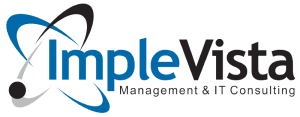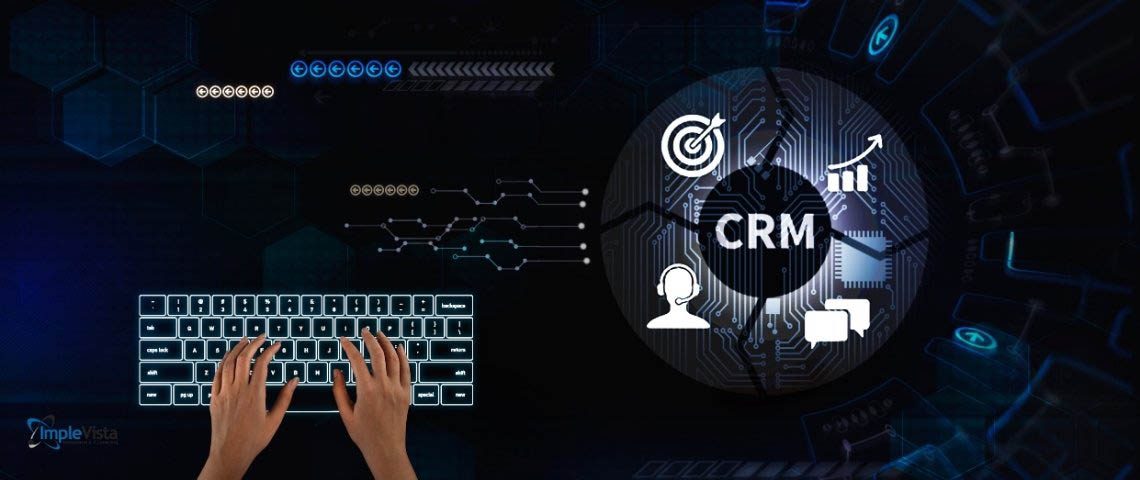The Automotive CRM is a specialized customer relationship management platform meticulously engineered to handle the complex, long-term sales and service cycles unique to the car industry. Far exceeding a basic contact database, this essential Car Dealership Software acts as a central intelligence hub, unifying all customer data, including detailed purchase histories, vehicle identification numbers (VINs), and service records, into a single, comprehensive profile.
By leveraging this centralized view, the Automotive CRM enables dealerships to automate critical processes like instant lead follow-up, execute hyper-personalized marketing campaigns, and provide consistent communication across all channels, directly resulting in enhanced sales conversion rates, elevated customer satisfaction, and superior long-term loyalty.
I. The Road Ahead for Automotive Retail
The global automotive industry is navigating a period of profound digital transformation. Driven by technological innovation, sustainability pressures, and shifting consumer behavior, traditional sales and service models are being rapidly overhauled.
Dealerships and Original Equipment Manufacturers (OEMs) can no longer rely on static operational efficiency; they must adapt to a customer base that demands seamless, personalized experiences from the first digital touchpoint through years of ownership.
The imperative is clear: the modern customer conducts extensive online research for weeks before ever contacting a sales representative or visiting a physical location. This shift dictates that the competitive edge now belongs to businesses capable of unifying and optimizing every interaction across the vehicle lifecycle.
Defining the Automotive CRM: More Than Just a Digital Rolodex
At its core, a Customer Relationship Management (CRM) system is a methodology and technology used to manage a company’s interactions and relationships with customers and prospects. However, an Automotive CRM is a specialized version of this platform, meticulously engineered to handle the unique, complex, and long-term sales and service cycles inherent in vehicle ownership.
This dedicated software functions as the central nervous system for managing customer data, tracking interactions, analyzing pipeline opportunities, and forecasting future sales and service needs. This comprehensive report will explore how adopting a best-in-class Automotive CRM solution is not merely a beneficial upgrade but a foundational requirement for securing business continuity and maximizing return on investment (ROI) in the digitized retail landscape.
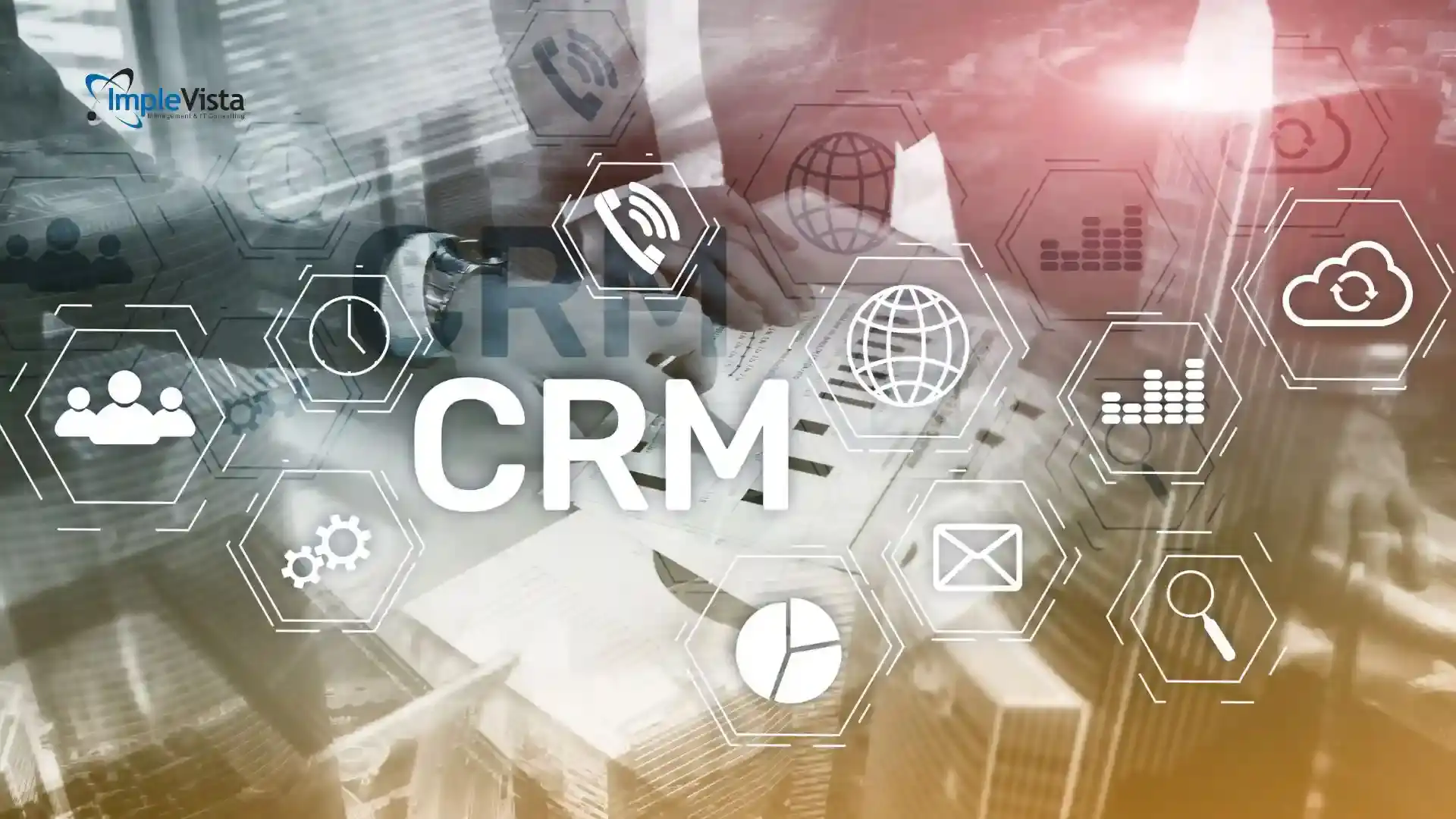
II. What is Automotive CRM and How Does it Redefine Car Dealership Software?
To appreciate the strategic importance of this technology, it is essential to delineate the Automotive CRM from other key operational platforms commonly used across the sector.
Differentiating CRM versus DMS: The Vehicle Sales Management System Core
Many organizations confuse Customer Relationship Management platforms with Dealer Management Systems (DMS) or Enterprise Resource Planning (ERP) tools. While all are vital components of a unified IT ecosystem, they serve distinct purposes:
- DMS (Dealer Management System): This system is the operational control center of the business, focusing inward. It manages core administrative and financial operations, including accounting, payroll, parts inventory management, vehicle inventory status, and F&I (Finance and Insurance) details.
- CRM (Customer Relationship Management): This platform focuses outward—on the customer. Its primary responsibilities include lead generation, lead tracking, sales pipeline management, targeted marketing automation, and customer support management.
The conclusion is that they are interdependent; neither system can deliver maximum value without the other. The Automotive CRM drives demand and manages the dynamic relationship with the client, while the DMS handles the transactional execution, order fulfillment, and financial processes.
Seamless integration between the Car Dealership Software platforms is absolutely non-negotiable for streamlining operations and generating a consistent profit.
The Global Imperative: Accelerating Automotive CRM Adoption
The industry’s rapid adoption rate confirms that specialized CRM is shifting from a desirable advantage to a fundamental requirement. The global Automotive CRM market is experiencing significant expansion, projected to grow at a Compound Annual Growth Rate (CAGR) of 12.5%, reaching an estimated USD 20.8 billion by 2033.
This substantial projected market growth is primarily fueled by two factors: the increasing demand for enhanced customer engagement and the steady proliferation of connected vehicle technologies. Data indicates that dealerships currently represent the largest segment driving this investment, accounting for more than 50% of the market revenue in 2024.
This trend underscores the fierce competitive nature of automotive retail, where firms must constantly invest in advanced solutions to manage the large volume of complex customer interactions effectively. Failing to invest now means falling exponentially behind the curve and potentially becoming functionally incapable of competing with digitized rivals.
The Strategic Value of Data Centralization for Dealerships
The core functional benefit of any Automotive CRM lies in its ability to manage all customer data and interactions within a unified system. Dealerships traditionally struggle with fragmented communication channels, forcing team members to juggle phone calls, emails, SMS messages, and social media interactions.
A robust Automotive CRM solves this problem instantly by creating a single, comprehensive customer profile. This centralized view allows any employee—from the showroom sales representative to the service advisor—to access an individual’s complete history, including contact details, purchase records (such as VIN and vehicle model) , service history, and past conversations, even those that occurred years ago.
This continuity is vital because it ensures that all customer interactions are consistent, personalized, and informed, eliminating the frustrating necessity for customers to repeat themselves—a frequent cause of poor customer experience.
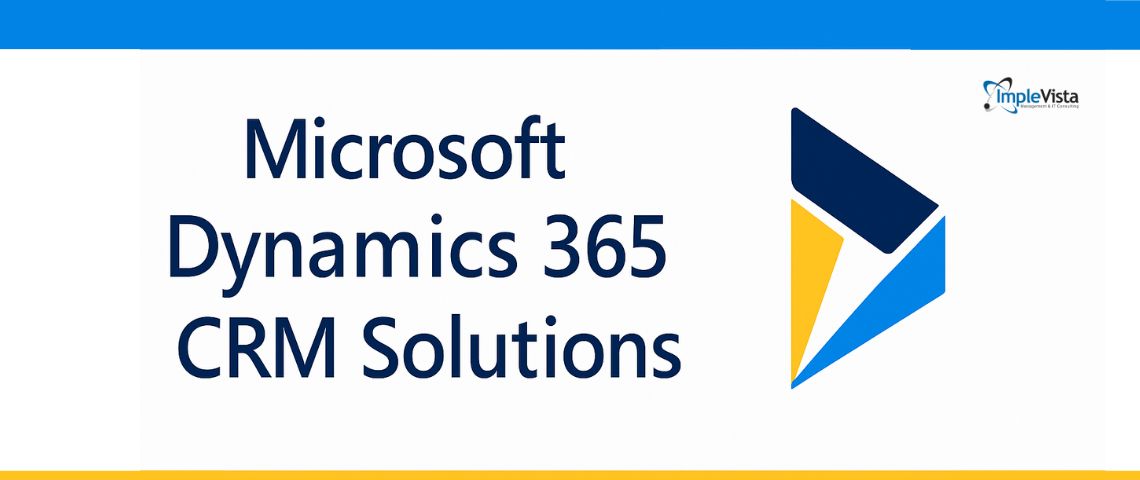
III. Core Functions: The Must-Have Features of a Modern Automotive CRM
The effectiveness of an Automotive CRM is measured by its capacity to accelerate sales performance and enhance customer loyalty across the entire spectrum of dealership operations.
Centralized Customer Data Management: The Foundation for Personalization
A successful CRM must capture data that is specific to the automotive lifecycle, going far beyond simple contact information.
Comprehensive Data Collection and Profiling
The system tracks crucial details such as the specific vehicle’s VIN (Vehicle Identification Number), model, and year, along with the owner’s purchase history, detailed service records, and the status of warranty claims. This deep, technical data collection is essential because it allows the dealership to move away from generic marketing efforts toward highly relevant communication.
The Power of Hyper-Personalization
With detailed customer data, dealerships gain the power to segment their audience precisely and create hyper-personalized marketing outreach. For example, the system can identify a cohort of customers whose vehicle model is frequently associated with a particular upgrade or whose factory warranty is nearing expiration.
The dealership can then proactively reach out with targeted, tailored offers, dramatically boosting customer satisfaction and the likelihood of conversion. This precise, data-driven approach demonstrates a genuine understanding of the customer’s specific tastes and needs, fostering loyalty and increasing the probability of future visits.
Mastering the Lead-to-Sale Funnel
The sales journey for a vehicle is often long and involves substantial capital expenditure, making meticulous lead management a critical activity. A specialized Vehicle Sales Management System within the CRM must ensure swift, effective handling of every prospect.
Instant Lead Capture and AI-Driven Follow-Up
In the automotive world, the speed of response is paramount; studies show that speed is a major determinant in winning deals. Leads originating from online advertising, social media, or web inquiries must be instantly captured, scored, and assigned.
Modern Automotive CRM systems incorporate advanced technologies, featuring AI assistants capable of responding to new leads within minutes—even during late hours—and continuing methodical follow-up when human staff are unavailable. This capability ensures that high-intent prospects are never lost due to delayed response times, giving the dealership a significant competitive advantage.
Dealerships relying on human-speed response times are demonstrably losing leads to rivals utilizing these automated, AI-driven solutions. This necessitates integrating sophisticated digital marketing and automation hubs directly into the CRM pipeline.
Digital Marketing and Lead Generation
Optimizing the flow of leads captured by a dealership’s digital presence is vital for maximizing the benefit of a new Automotive CRM. For organizations looking to enhance their online visibility and capture more high-quality leads, understanding strategic content is key: Content Marketing.
Opportunity Management and Pipeline Visibility
The CRM provides sales managers with real-time, transparent dashboards for tracking all open opportunities and visualizing the complete sales pipeline. By tracking and analyzing specific metrics, managers can readily identify operational bottlenecks, optimize sales strategies, and focus team efforts where they are most likely to increase conversion rates. This level of operational insight is essential for improving overall sales performance.
Streamlining Communication and the Omnichannel Experience
Fragmented communication remains one of the greatest customer experience challenges for auto dealerships. A centralized CRM platform transforms this by ensuring complete interaction history is available to everyone who engages with the customer.
The platform supports a true omnichannel experience, meaning all forms of communication—phone, email, SMS, and in-person notes—are logged and accessible. This unification reduces miscommunication, prevents customers from needing to repeat details, and improves overall satisfaction and team efficiency.
The system also greatly improves marketing efficiency through automation. The Automotive CRM automates tailored email drip campaigns and targets advertisements based on the customer’s specific position within the sales or ownership cycle. This targeted outreach saves significant time and effort, ensuring the right message reaches the right audience at the moment it is most relevant.

IV. Advanced Applications: Beyond the Dealership Floor
The most strategic implementations of Automotive CRM systems integrate the technology across the entire customer lifecycle, recognizing that retention achieved through service excellence is the key to maximizing long-term revenue.
Optimizing the Aftermarket: Leveraging Garage Management Software CRM
The service department is frequently cited as the backbone of customer retention. A new vehicle sale initiates a relationship that can last years or even decades, provided the service experience is exceptional.
Service Scheduling and Retention Tools
Modern Automotive CRM platforms seamlessly track maintenance records and predict maintenance needs based on vehicle mileage or historical service frequency. They automatically trigger timely reminders and service offers, ensuring the customer returns to the dealership’s service center rather than a third-party garage.
This proactive relationship management helps build deep trust and dramatically increases the Customer Lifetime Value (CLV). The system’s function goes further by integrating operational tools necessary for the service floor, effectively acting as dedicated Garage Management Software CRM. These specialized modules handle several core after-sales functions:
- Work Order Management: Creating, tracking, and managing digital job cards for all repair and maintenance requests.
- Financial Handling: Streamlining billing, invoicing, and the application of discounts or coupons directly related to service offers.
- Inventory Control: Tracking specific parts inventory necessary for service and repair needs, allowing the service center to run efficiently.
Using these dedicated CRM functions, service businesses can ensure efficient customer communication, keeping them happy and guaranteeing they continue to return for essential maintenance and future vehicle purchases. The service department is thus strategically positioned not as a cost center, but as the primary engine for recurring revenue and future sales validation.
The Power of AI in Automotive CRM: Predictive Relationship Management
Artificial Intelligence is fundamentally changing how dealerships and OEMs interact with customers, moving from merely reactive selling to predictive engagement. Leading platforms, such as DriveCentric and the CDK Modern Retail Suite, have focused on developing powerful AI capabilities.
Driving Intelligence and Personalization
AI integration allows for sophisticated predictive lead scoring, where algorithms analyze massive amounts of historical behavior and demographic data to accurately rank leads based on their high likelihood of conversion. This capability allows sales teams to allocate their time and resources to the most promising opportunities, improving efficiency and conversion rates simultaneously.
Furthermore, AI enables real-time hyper-personalization, continuously monitoring customer behavior across digital touchpoints and instantly adapting messaging and product recommendations to improve relevance. This granular attention to detail maximizes the effectiveness of marketing campaigns and strengthens the customer connection.
Enhancing OEM and Dealer Collaboration
The complexity of the automotive supply chain requires flawless communication between manufacturers and retailers. Automotive CRM solutions are proving instrumental in streamlining this collaborative relationship. The system facilitates real-time data sharing regarding crucial metrics such as current inventory levels, prevailing sales trends, and detailed customer preference reports between the dealership network and the OEM.
This synchronized data enables manufacturers to make rapid, data-driven decisions concerning product planning and distribution, ensuring highly demanded vehicles are allocated correctly, which ultimately strengthens the OEM-dealership relationship and improves the overall customer experience.
Moreover, CRM systems simplify the typically complex processes of managing warranty claims and repairs, further boosting efficiency and customer trust during sensitive periods.

V. Implementation Strategy and Maximizing CRM ROI
Implementing a comprehensive Automotive CRM is a complex digital transformation project, particularly within large dealer groups or manufacturing organizations. Success hinges equally on robust technology deployment and disciplined user adoption.
The Essential Cloud Foundation and Technical Integration
The modern Vehicle Sales Management System must handle enormous volumes of data—from customer records and sales figures to real-time data streaming from connected vehicles.
Scalability and Performance
The necessity for speed and accessibility mandates a shift toward specialized cloud architecture. Cloud-based solutions provide the necessary scalability and stability to handle high transaction volumes. Furthermore, successful deployment must address technical performance metrics crucial for SEO and user experience, such as Core Web Vitals (Largest Contentful Paint, Cumulative Layout Shift, and Interaction to Next Paint).
These performance factors are directly linked to customer satisfaction, ranking success, and conversion rates. Expert Cloud Engineering ensures the platform is optimized for fast loading and mobile usage, meeting Google’s standards for helpful content.
Cloud Solutions and Architecture
For optimal performance and future scalability, dealerships must utilize expert architecture when deploying their digital solutions. Organizations can achieve rapid deployment and ensure high performance for their complex digital ecosystem by leveraging strategic cloud architecture partners: Cloud Engineering.
The Integration Challenge
A core operational reality is that the CRM must seamlessly interact with existing technology. The platform requires integration with the Dealer Management System (DMS) for inventory and F&I data, and often with Enterprise Resource Planning (ERP) systems, especially SAP, which is common in OEM logistics.
Without this flawless data exchange, the CRM cannot function effectively, leading to fragmented information and data silos—the very problem the CRM is designed to eliminate.
ERP Integration (SAP Services)
Achieving seamless, real-time data flow between the CRM, DMS, and core enterprise systems requires specialized technical expertise. Ensuring the Automotive CRM integrates flawlessly with supply chain, manufacturing, and core enterprise systems, particularly complex SAP environments, is essential for large organizations: SAP Services.
Achieving Adoption and Driving ROI
While investment in the technology can be substantial , the measurable success of any Automotive CRM relies heavily on the people using it. Current industry data suggests that average CRM usage performance sits poorly at just 2 out of 5 across the industry.
Overcoming the Human Factor
Poor staff proficiency and low adoption rates represent a major barrier to realizing the CRM’s potential. Dealerships must commit to comprehensive training programs and clear onboarding strategies for new employees to ensure the team is confident in using the system fully. Management often incentivizes consistent CRM usage to reinforce its importance and drive positive results, ensuring the investment delivers maximum strategic value.
Measuring Success: Key Performance Indicators (KPIs)
To justify the expenditure and demonstrate the value of the platform, the effectiveness of the Automotive CRM must be rigorously quantified using clear metrics. Performance should be monitored across multiple departments, including sales efficiency, customer retention, and operational productivity.

Details how specialized functionality transforms major dealership KPIs. Key Performance Indicators (KPIs) Accelerated by Automotive CRM
| KPI Category | Pre-CRM Performance Issue | CRM Solution | Measurable Impact |
| Sales Conversion Rate (LCR) | Slow lead follow-up, poor lead qualification. | Automated lead scoring and instant response systems. | Increased LCR and faster time-to-sale metrics. |
| Customer Retention Rate | Missing maintenance reminders, fragmented communications. | Automated service reminders, personalized outreach based on history. | Increased repeat business and higher Customer Lifetime Value (CLV). |
| Operational Efficiency | Juggling fragmented communication channels and manual data entry. | Unified Omnichannel Inbox and centralized customer profile. | Reduced miscommunication, improved staff productivity, and quicker response times. |
| Marketing Spend Efficiency | Generic marketing campaigns sent broadly. | Segmentation tools for precise, targeted ad campaigns. | Higher lead quality, lower cost-per-acquisition (CPA). |
This data confirms that the implementation of a functional CRM moves the platform from being a pure expense to a foundational asset that drives measurable improvements in sales volume (LCR) and long-term recurring revenue (retention rates).
VI. The Strategic Advantage: Data, Development, and Local Expertise
The full competitive advantage of an Automotive CRM is achieved not just through implementation, but through continuous platform optimization, customization, and sophisticated analysis of the customer data it aggregates.
Unlocking Strategic Value with Business Analytics
The sheer volume of data generated by a mature Automotive CRM system—covering everything from individual preferences to aggregate sales cycles and market trends —is a goldmine for strategic decision-making. Specialized Business Analytics tools are necessary to translate this raw information into actionable business intelligence. For automotive firms, this means:
- Predictive Demand Planning: Using historical data, the dealership can predict which vehicle types or configurations will be most in demand next season.
- Proactive Service Planning: Analytics can forecast which customers are nearing a critical service interval or likely to need major repairs, allowing the service department to proactively manage scheduling, stock parts inventory, and optimize technician availability.
By integrating analytical capabilities directly into the CRM strategy, dealerships transition from reacting to customer needs to anticipating them, dramatically improving operational profitability.
Data-Driven Decision Making
To translate vast amounts of customer data into meaningful business improvements, specialized expertise in data analysis is required. Organizations can transform their CRM data into strategic business intelligence and competitive insight using specialized analytical services.
Customizing Your Vehicle Sales Management System
While robust, off-the-shelf CRM solutions exist (including leaders like VinSolutions, DriveCentric, and DealerSocket) , many regional markets, specialized fleet operations, or unique dealership models require tailored functionality that generic platforms cannot provide.
A dedicated Development Team becomes essential for building proprietary features, customizing the user interface, creating bespoke reporting dashboards, or developing unique system integrations. For instance, connecting the vehicle’s onboard telematics or IoT data directly to the CRM requires specialized mobility and development expertise.
Furthermore, regional market variations often demand tailored solutions for local regulatory compliance or integration with local payment gateways and specific web platforms, such as solutions designed for enhancing car sales and dealership management in the Bangladeshi market. This bespoke development capability ensures the Automotive CRM is perfectly aligned with unique business needs and local requirements.
Bespoke Development and Customization
When proprietary processes or specialized market needs exceed the capabilities of off-the-shelf software, custom solutions are required. Dealerships should partner with an expert development team to build the perfect Automotive CRM or Vehicle Sales Management System tailored to their unique requirements.
To reinforce the argument for specialized, customized solutions, the analysis below highlights the inherent limitations of using generic, multi-industry CRM platforms for complex automotive operations:
Tactical Advantages of Specialized Automotive CRM vs. Generic CRM
| Feature/Metric | Generic CRM Solution | Automotive CRM (Specialized) | Deeper Business Value |
| Data Structure | Tracks contacts and opportunities (General B2B/Retail). | Tracks VINs, Service History, Warranty Dates, OEM data, F&I documents. | Focuses on the physical asset (vehicle) and its long-term health, ensuring comprehensive customer history. |
| Lead Routing | Basic round-robin or geography-based assignment. | AI-driven prioritization based on specific model interest and urgency (high-scoring lead). | Ensures sales staff immediately prioritize the highest-intent, most profitable leads, maximizing conversion speed. |
| Key Automation | Standard email newsletters, task reminders. | Automated service reminders, proactive trade-in cycle triggers, warranty claims management. | Automates complex, mandatory regulatory and service touchpoints unique to vehicle ownership, boosting retention. |
| External Integration | Basic Accounting and Marketing Automation links. | Deep, mandatory integration with proprietary DMS, manufacturer systems, and real-time parts inventory systems. | Required for real-time inventory and pricing accuracy, eliminating data integrity issues and ensuring efficient transactions. |
The need for highly specialized data structures—such as VIN tracking, warranty management, and manufacturer data exchange—makes the adoption of a generic CRM platform insufficient for modern, competitive automotive retail. The core sales model depends on these unique integration points, confirming the critical role of a specialized Automotive CRM.

VII. Conclusion: Driving the Future of Automotive Customer Experience
The evidence consistently demonstrates that the adoption of a powerful Automotive CRM solution is the defining strategic step for any automotive entity aiming to thrive in the digital age. This sophisticated Vehicle Sales Management System is far more than a simple database; it is the central intelligence hub that manages the most valuable asset a dealership possesses: its customer relationships.
By enabling instant, AI-driven lead response, unifying fragmented communication across all channels, and leveraging after-sales data for proactive customer engagement through Garage Management Software CRM functionality, the platform ensures that the dealership is always anticipating, rather than reacting to, customer needs.
This capability directly translates into measurable increases in lead conversion, operational efficiency, and, most importantly, sustained long-term customer loyalty. As the global Automotive CRM market continues its explosive growth trajectory , maximizing utilization and integrating the system successfully is crucial for maintaining a competitive edge.
Whether the requirement is for complex enterprise-level SAP integration, building a robust, high-performance cloud architecture, developing bespoke features for niche operations, or deploying strategic business analytics to interpret the customer data, specialized technology partners are necessary to ensure the implementation delivers maximum, measurable ROI.
Ready to transform your sales floor, streamline your service operations, and unlock the full potential of your customer data?
Contact Implevista today to discuss a customized Automotive CRM implementation strategy that integrates seamlessly with your existing Dealer Management Systems and drives unparalleled business growth.
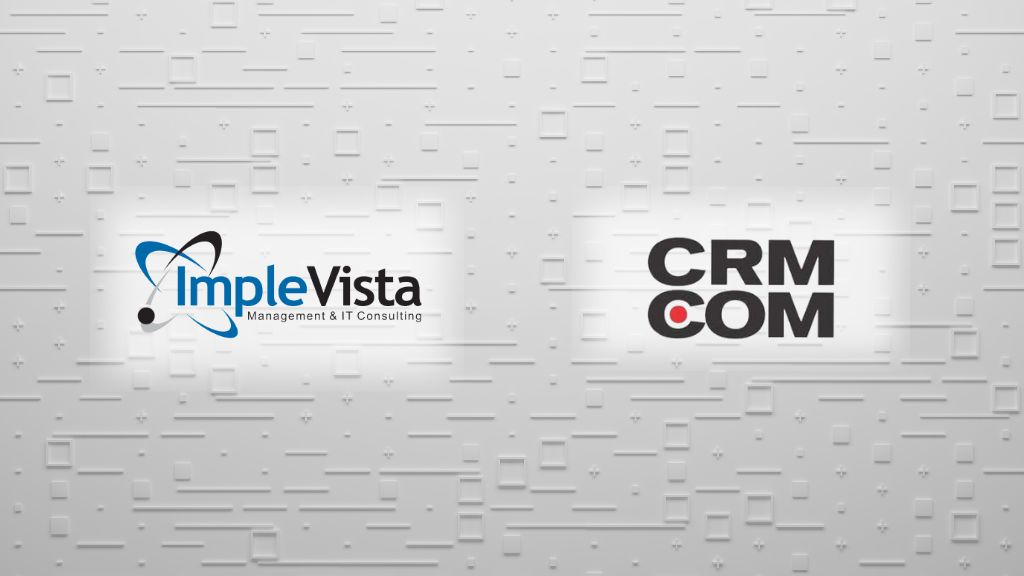
Frequently Asked Questions (FAQ) about Automotive CRM
Q: What is the primary benefit of using a specialized Automotive CRM?
The primary benefit is establishing a single, comprehensive view of the customer across sales, service, and ownership cycles. This holistic data enables hyper-personalized engagement, dramatically increasing customer retention and enhancing sales conversion rates.
Q: How does Automotive CRM differ from a Dealer Management System (DMS)?
A DMS manages internal operations (inventory, accounting, payroll). In contrast, an Automotive CRM focuses entirely on external customer relationships, managing the sales funnel, lead generation, and marketing automation efforts.
Q: What are the key features an effective Car Dealership Software CRM must include?
Essential features include centralized data management (including VINs and service records), automated lead capture and follow-up, powerful marketing segmentation tools, and deep integration compatibility with core dealership systems.
Q: Is CRM important for the after-sales service department?
Yes, absolutely. The CRM provides crucial Garage Management Software CRM functions, automating maintenance reminders, tracking service history, and managing repair communications, which is foundational for securing long-term customer loyalty and repeat business.
Q: How can a dealership measure the ROI of its Automotive CRM investment?
ROI is primarily measured using Key Performance Indicators (KPIs) such as improved lead conversion rates, enhanced sales team efficiency, higher customer satisfaction scores, and increases in the percentage of repeat service and vehicle purchases.
Q: What is the biggest challenge during Automotive CRM implementation?
The biggest challenge is achieving widespread staff adoption. Comprehensive, hands-on training and ongoing technical support are essential strategies to ensure the sales and service teams utilize the Automotive CRM to its full potential.
Q: How does AI impact the efficacy of Automotive CRM?
AI-powered Automotive CRM delivers superior speed and personalization through instant lead response and predictive analytics (such as lead scoring). This guarantees that urgent, high-value leads are engaged immediately, significantly boosting conversion likelihood.
Q: Can CRM help manage communication across multiple channels (omnichannel)?
Yes, a core strength of modern Automotive CRM is its ability to centralize and unify fragmented communication channels—including phone, email, SMS, and social media—into a single customer record, eliminating friction and improving consistency.
Q: Which segments of the automotive market are driving CRM adoption?
Dealerships represent the largest end-user segment, driving over 50% of market revenue. However, automotive OEMs are also major adopters, seeking to improve dealer network collaboration and gain deeper customer preference insights.
Q: What role does data integration play in a Vehicle Sales Management System?
Data integration is critical. The CRM must integrate seamlessly with the DMS and ERP systems to provide accurate, real-time data on vehicle inventory, current pricing, and warranty information necessary for informed decisions throughout the sales and service cycles.
